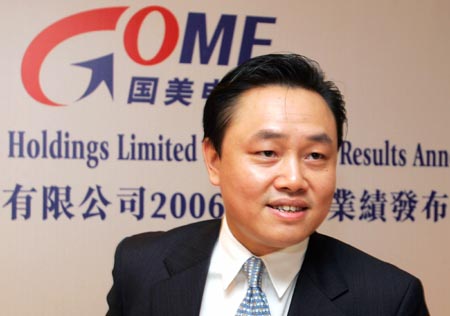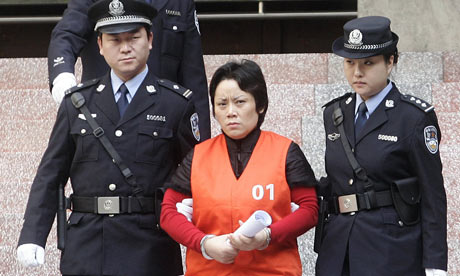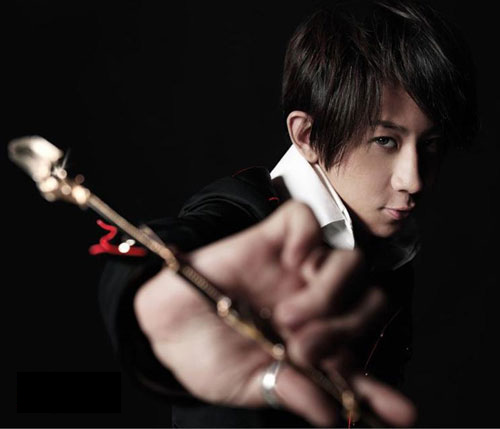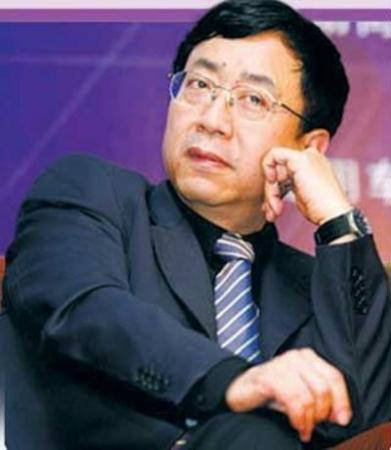Two interesting observations about the most-watched people. First, 20 percent of the list goes to Americans, and to black Americans at that: President Obama, not surprisingly; and Tiger Woods (who it might be noted is part Chinese, though it’s doubtful this had anything to do with his popularity). Secondly, 70 percent is negative-news related. I would reckon this is a necessary complement to the relentlessly positive “news” in the mainstream press.
1. President Obama
Obama’s election night victory speech (which of course was given in November 2008, and not actually in 2009) resonated across the Pacific in China, with many viewers reporting that they were actually moved to tears by some of his oratory and the power of the moment. We’re so often told about an assertive China and a Chinese Internet seething with angry nationalistic youth scornful of the U.S. and its president, but the popularity of Obama and the reception of his speech at least among Youku viewers suggests a more complex picture indeed.
2. Brother Zeng
For me, the most baffling and disturbing part is to hear the supportive whistling and applause. Am I still in my world where singing or performing is still interpreted through time-tested, evolution-selected bio- or physiological standards? If so, how can one possibly understand this Brother Zeng phenomenon? If we want to describe Brother Zeng as another Furong Jiejie, the latter at least seems to have her own logic, however twisted: She’s some kind of narcissistic personality disorder victim, and her “fandom” is clearly tongue-in-cheek. But what’s up with people who liked Brother Zeng?
 3. Gome Founder Huang Guangyu
3. Gome Founder Huang Guangyu
Huang Guanyu, the founder of China’s largest appliance chain Gome Electrical Appliances, used to be the second-richest man in mainland China. But it’s a dangerous business to be rich in the PRC. Under investigation for white-collar crime, Huang resigned his position as Gome chairman, as reported in this video news. The news also disclosed that Huang gambled away 8 billion RMB in 2009. The news report suggest this caused a broken link in Gome’s cash flow, which we would assume partly contributed to Huang’s collapse.
 4. “Scholar” Ren Zhiqiang
4. “Scholar” Ren Zhiqiang
Ren is famous for being the unofficial spokeman for Chinese realtors and developers. When the television drama Snail House stirred up Chinese emotions over skyrocketing housing prices, Ren jumped out to claim in this news clip that it’s only natural that Chinese youth cannot afford apartments of their own. He also believed that housing prices in China were still too cheap. An amazing quote from him: “Even in developed countries such as the U.S., owning a house and a car yourself is considered a dream, but here in China, many youngsters around 30 realized this dream. Don’t you think we are more advanced?”
5. Tiger Woods
Tiger Woods, as everyone on Earth probably already knows, cheated on his wife and announced that he was leaving pro golf “with no specific return date.” one exact same phrase used by Edison Chen (Chen Guanxi), a Hong Kong entertainer who was caught in a massive and very, erm, graphic sex scandal in early 2008.
The related news ranked third on Youku’s Top 10 Hot Topics. 20-year-old Hu Bin struck and killed a pedestrian while street racing in Hanghzou, instantly becoming the poster child for the “rich second generation.” Chinese netizens followed the news closely, and soon discovered the boy in court looked totally different. Rumor of the rich Hu family paid certain taxi driver to replace Hu Bin for three year imprisonment quickly spread online. This video report did a small investigation and proved it was the real Hu Bin who is now serving his term.
 7. Xiao Shenyang
7. Xiao Shenyang
Comedian Xiao Shenyang became a household name after his performance on CCTV’s annual Spring Festival show (春晚) early in 2009. The sketch that made him famous was called “Money’s No Issue,” (不差钱,buchaqian), but ironically a scandal about suggested that for Xiao Shenyang, money really is an issue. After performing in Shanghai, he was booked to perform in the nearby city of Changzhou, and the show promoter there sent a tourbus to pick him and his entourage up in Shanghai. His manager refused to allow him to perform unless the Changzhou promoter paid all costs of airfare to and from Beijing. After the promoter relented and paid, the comic and his crew caused another scene in a restaurant, insisting that the poor promoter pick up the tab for a lavish banquet.
 8. Xie Caiping
8. Xie Caiping
This ordinary-looking middle-aged woman was in fact the capo di tuti capi, the boss of all bosses, in the massive Chongqing organized crime syndicate that’s been the object of a major investigation this year. She allegedly controlled gambling and the drug trade, and had a large string of officials in her pocket. What a contrast to the stereotype we have of the heilaoda (黑老大). Xie was given a prison term of 18 years, and a fine of 1.02 million RMB.
 9. Magician Liu Qian
9. Magician Liu Qian
After performing at CCTV’s annual Spring Festival gala (春晚), Taiwanese magician Liu Qian gained fame overnight in mainland area, and sparked nationwide fever for magic. Liu Qian has long been referred to as the most renowned Taiwanese magician and performed internationally. His contemporary program design and always sleek appearance attracted millions, and now apparently billions viewers. This video clip from one entertainment program at Hunan Satellite TV shows how Liu Qian works his magic.
 10. Writer Yu Qiuyu or Investor Yu Qiuyu
10. Writer Yu Qiuyu or Investor Yu Qiuyu
Writer Yu Qiuyu is famous for his signature meditations on Chinese culture and history — and for his ability to earn money on his literary fame. In a country that traditionally believes the intelligentsia should choose a life of material poverty, Yu Qiuyu drew a lot criticism when news that he had invested in a former state-owned department store came out. As one of the major shareholders, Yu Qiuyu’s stake, on paper at least, was worth billions of yuan. Though many viewers support a writer to make money, many question how the ownership of a state-owned department store can easily and mysteriously be transferred to certain seemingly irrelevant individuals.
Source: buzz.youku.com






No comments:
Post a Comment